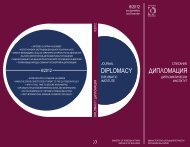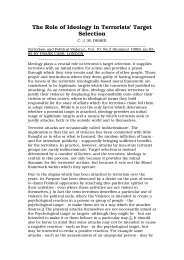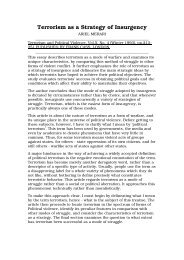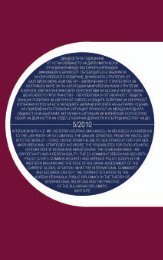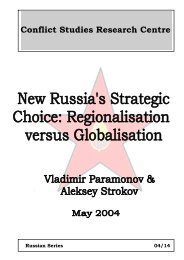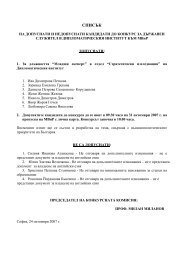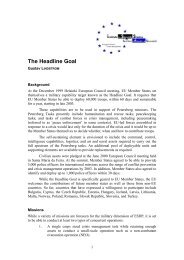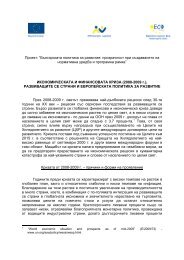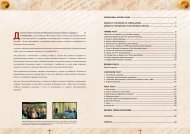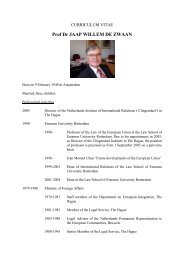The Myth of Ethnic Conflict: Chap 13 - Diplomatic Institute
The Myth of Ethnic Conflict: Chap 13 - Diplomatic Institute
The Myth of Ethnic Conflict: Chap 13 - Diplomatic Institute
You also want an ePaper? Increase the reach of your titles
YUMPU automatically turns print PDFs into web optimized ePapers that Google loves.
478 Maria Todorova<br />
other institutions. Yet this very emphasis on the unifying potential<br />
<strong>of</strong> language stressed at the same time its exclusiveness and the rigidity<br />
<strong>of</strong> the ethnic boundaries it delineated. This precluded the integration<br />
(except in the cases <strong>of</strong> assimilation) <strong>of</strong> different linguistic<br />
groups into a single nation.<br />
Moreover, not only did groups <strong>of</strong> different linguistic background<br />
from the dominant ethnic group in the nation-state prove<br />
impossible to integrate; so also did groups <strong>of</strong> identical ethnic background<br />
and speakers <strong>of</strong> the same (or dialects <strong>of</strong> the same) language,<br />
like the Bulgarian-speaking Muslims, the Slavic Bosnian Muslims,<br />
the Torbeshi in Macedonia, etc. <strong>The</strong>se cases invoke the general problem<br />
<strong>of</strong> religion as a political boundary, that <strong>of</strong> the Balkan Muslims<br />
in particular. Despite the fact that language indeed had become the<br />
nucleus <strong>of</strong> different ethnic and national identities among the Balkan<br />
Christians (Orthodox for the most part), it could not raze the fundamental<br />
boundary between Muslims and Christians that had been<br />
established during the centuries <strong>of</strong> Ottoman rule. <strong>The</strong> reason for this<br />
was not, as the great bulk <strong>of</strong> Balkan and foreign historiography<br />
maintains, the fact that Orthodoxy played a major and crucial role<br />
in nation-building. 17 In fact, “religion came last in the struggle to<br />
forge new national identities” and in some cases “did not become a<br />
functional element in national definition until the nation-states had<br />
nationalized their churches.” 18 It never could be a sufficient component<br />
<strong>of</strong> national self-identity, and even in the national struggles its<br />
primary contribution was to strengthen the opposition to the Muslim<br />
rulers. 19 Within the Orthodox ecumene, the process <strong>of</strong> nation-building<br />
demonstrated “the essential incompatibility between the imagined<br />
community <strong>of</strong> religion and the imagined community <strong>of</strong> the<br />
nation.” 20<br />
This does not mean that the religious boundary between Christianity<br />
and Islam was the only divider. Clearly the different Christian<br />
denominations, and particularly the opposition between Orthodoxy<br />
and Catholicism, presented additional frontiers <strong>of</strong> tension. Yet these<br />
frontiers did not prove as insurmountable. 21 Ironically Balkan nationalism,<br />
which irrevocably destroyed the imagined community <strong>of</strong><br />
Orthodox Christianity, managed to preserve a frozen, unchangeable<br />
and stultifyingly uniform image <strong>of</strong> the Muslim community and consistently<br />
dealt with it in millet terms. In other words, the Christian<br />
populations <strong>of</strong> the Balkans began speaking, among themselves, the



